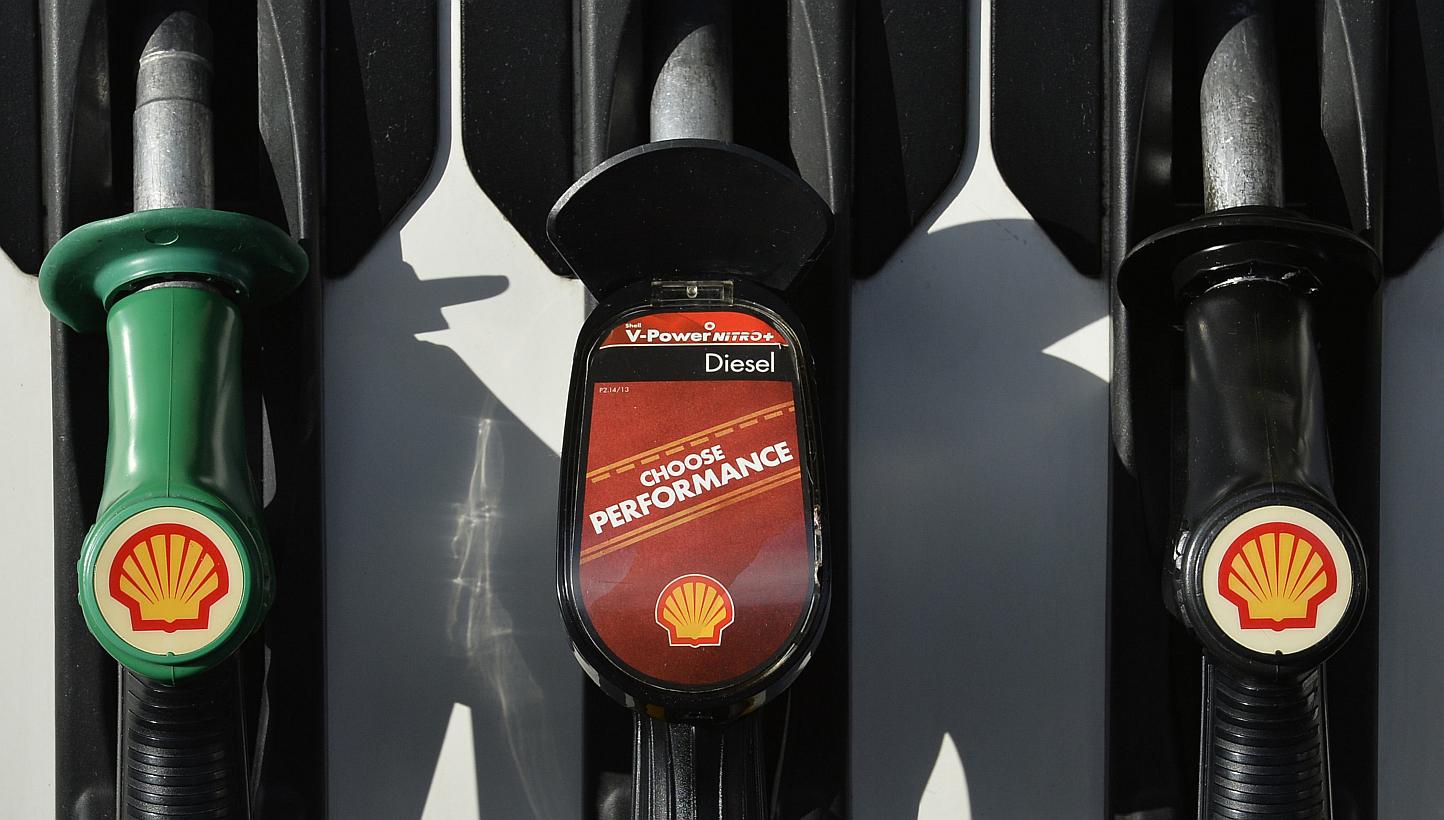Shell seeking to buy BG Group in first oil super-merger in over a decade
Sign up now: Get ST's newsletters delivered to your inbox

Follow topic:
LONDON - Royal Dutch Shell is in advance talks to buy BG Group in the first oil super-merger since early 2000s to extend its global lead in gas production and close the gap with the world's biggest oil major U.S. ExxonMobil.
BG, which is worth US$46 billion (S$62.57 billion), said in a statement on Tuesday it was in advanced discussions regarding a possible offer by Shell, whose market capitalisation is US$202 billion. Exxon is worth US$360 billion.
"There can be no certainty that any offer will ultimately be made for BG," BG said in a statement adding that Shell must announce a firm intention to make an offer by May 5, or announce that it does not intend to make an offer.
Discussions were first reported by the Wall Street Journal, citing sources familiar with the matter.
Oil prices have halved since the middle of 2014 due to a shale oil boom in the United States and a decision by Saudi Arabia not to cut production - creating an environment similar to the early 2000s when many super-mergers took place.
Back then, oil major BP acquired rival Amoco and Arco, Exxon bought Mobil and Chevron merged with Texaco.
A lot of bankers have argued, however, that the era of easy super-mergers was over since then and the number of fresh acquisition targets was limited.
BG, which has ambitious production growth targets and multi-billion dollar projects in Brazil, East Africa, Australia, Kazakhstan and Egypt, has long been seen as a rare potential acquisition target, including by cash-rich rivals such as Shell or Exxon.
However, the UK-based producer has its problems which could complicate any transaction, bankers familiar with BG's operations have said.
"Brazil is certainly a drag on any transaction," one of the London-based bankers said, referring to the ongoing investigation in Brazil into corruption charges involving state champion Petrobras.
Including BG's net debt of about US$12.0 billion, any transaction would be the biggest this year and fourth largest oil and gas deal globally since 1996.
Buying BG would be Shell's largest acquisition since the £40.7 billion merger of its Dutch and U.K. parent companies in 2005, according to data compiled by Bloomberg.
Shell, which invented the oil tanker in the 1890s to haul Caspian Sea crude to European markets, saw its worldwide production drop to the equivalent of 3.08 million barrels a day in 2014, the lowest in at least 17 years. Reserves, a metric that investors watch to assess future growth prospects, have declined in two of the past three years.
In contrast, BG boosted reserves in six of the past seven years. Its reserves were 78 per cent gas as of Dec. 31, compared with 47 per cent for Shell.
BG was forged from the exploration arm of the U.K.'s former state-owned gas monopoly, British Gas, that was privatized by Margaret Thatcher in the 1980s. The company was led for more than a decade by Frank Chapman, who built a global LNG business and drilled wells from Kazakhstan to Brazil. The company's market value rose more than fivefold during his tenure, outperforming larger rivals including
Shell and BP Plc. Chapman retired at the end of 2012 and his successor Chris Finlayson lasted little more than a year, resigning in early 2014 after profit warnings and disagreements with the board over strategy. He was replaced by Helge Lund, poached from Norway's state oil producer Statoil, who BG made the most highly paid oil executive in Europe to win his services. He now seems set to negotiate the sale just two months after taking the helm.
BG posted a record US$5 billion loss in the fourth quarter, mainly due to writing down the value of its Australian assets as commodity prices fell. BG last month told investors it expected global LNG demand to grow at 5.1 per cent per year from 2014 to 2025, with current supply and planned additions insufficient to meet anticipated demand from the early 2020s onwards.
Reuters, Bloomberg

